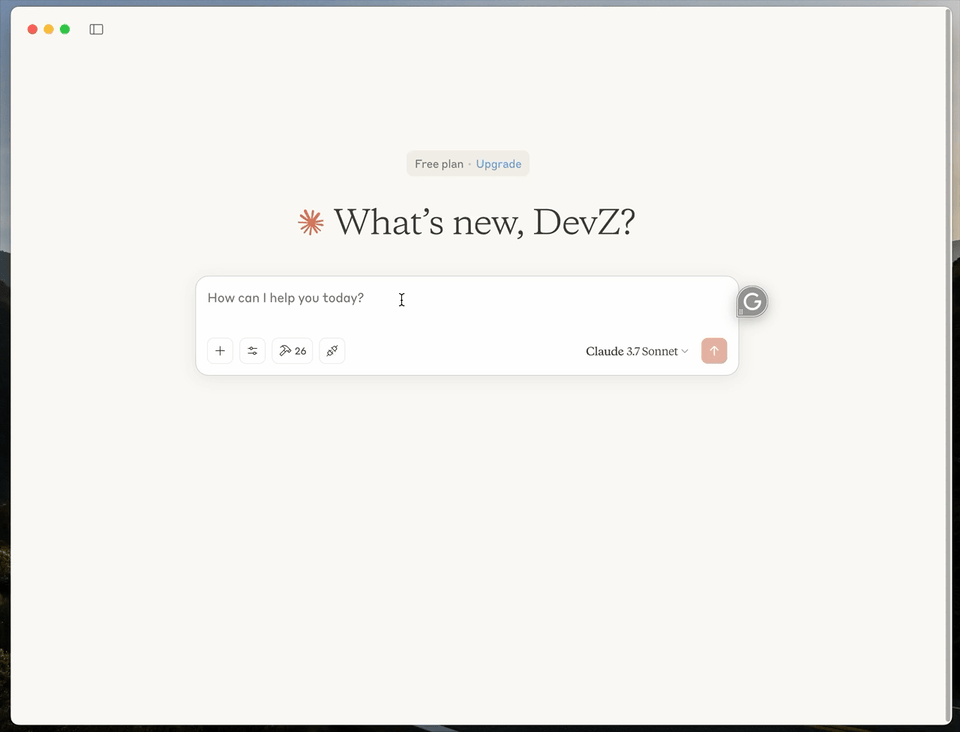About
The Auth0 MCP Server lets large language models and AI agents perform Auth0 management tasks—such as creating apps, deploying actions, or querying logs—using plain English commands. It bridges LLMs with Auth0’s API for seamless automation.
Capabilities

Overview
The Auth0 MCP Server bridges the gap between conversational AI assistants and the Auth0 identity platform. By exposing a set of Auth0 management operations as MCP tools, it allows large language models such as Claude to perform tenant‑level tasks—creating applications, configuring actions, querying logs, and more—directly from natural language prompts. This eliminates the need for developers to manually run CLI commands or navigate the Auth0 dashboard, streamlining routine administrative workflows and accelerating prototype development.
At its core, the server implements the Model Context Protocol’s tool interface. When an AI assistant receives a user query that maps to an Auth0 operation, the MCP server translates it into the corresponding Auth0 Management API call. The response is then fed back to the model, enabling a seamless dialogue where the assistant can ask clarifying questions or confirm actions before execution. This conversational loop not only improves accuracy but also provides an audit trail of changes made through the AI interface.
Key capabilities include:
- Application Management – Create, update, and delete Auth0 applications, retrieve client IDs and domains, and configure callback URLs.
- Action Deployment – Build and deploy Auth0 Actions that can generate JWTs, modify user data, or trigger custom workflows.
- Log Analysis – Query Auth0 logs by IP address, event type, or time range to investigate authentication events.
- User and Permission Controls – Manage users, roles, and permissions programmatically through natural language commands.
These features are especially valuable for teams that need to iterate quickly on identity flows or integrate authentication logic into new products. For example, a product manager can ask the assistant to “create a new SSO app for our marketing team” and receive an instant, verified configuration without leaving the chat. Security teams can use log‑search tools to audit suspicious login attempts on demand, while developers can prototype custom authentication logic by deploying actions through a single sentence.
Integration with existing AI workflows is straightforward. The server registers itself as an MCP tool provider, so any MCP‑compliant client—Claude Desktop, Windsurf, Cursor, or custom implementations—can discover and invoke its capabilities automatically. Once authenticated via OAuth 2.0 device flow, credentials are stored securely in the host’s keychain, ensuring that sensitive tokens never appear in logs or prompts. This design keeps the user experience frictionless while maintaining strong security practices.
In summary, the Auth0 MCP Server empowers developers and non‑technical stakeholders to manage identity infrastructure through conversational AI. By turning Auth0’s rich API surface into intuitive language commands, it reduces operational overhead, speeds up feature delivery, and opens new possibilities for AI‑driven automation in identity‑centric applications.
Related Servers
MindsDB MCP Server
Unified AI-driven data query across all sources
Homebrew Legacy Server
Legacy Homebrew repository split into core formulae and package manager
Daytona
Secure, elastic sandbox infrastructure for AI code execution
SafeLine WAF Server
Secure your web apps with a self‑hosted reverse‑proxy firewall
mediar-ai/screenpipe
MCP Server: mediar-ai/screenpipe
Skyvern
MCP Server: Skyvern
Weekly Views
Server Health
Information
Explore More Servers
MCP Server in .NET
Build a Model Context Protocol server with C#
Starreport
MCP Server: Starreport
TheGraph MCP Server
AI agents powered by indexed blockchain data
MCP Demo Repository
Showcase of MCP-powered services and client examples
PostgreSQL Full Access MCP Server
Full read-write access to PostgreSQL via Model Context Protocol
Simple MCP Server
Standardized stdio-based MCP server for quick prototyping